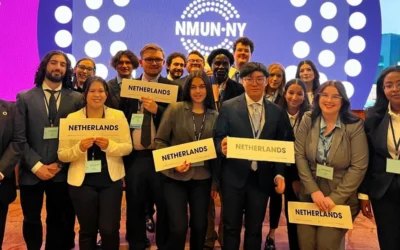Over the last weekend of September, MacEwan University’s City Centre Campus hosted its first ever LGBTQ+ Muslims and Islam Conference. While initial reactions to the idea of the conference were mixed, turnout was substantial and sessions ran smoothly.
Junaid Jahangir, a MacEwan professor of economics, conceived the idea for the conference. He states that his work with InQueeries, a club seeking to create a diverse and accepting campus for LGBTQ+ students, was key to bringing the event to life. MacEwan’s Centre for the Advancement of Faculty Excellence (CAFE) and others also provided support.
The event has been widely promoted, Jahangir states, particularly among social workers, youth workers, and community organizations.
“I also want imams and Muslim institutions (to come to the event) … there is a deep, freezing silence on their part. That’s why I’ve told my students to email them directly and contact them,” Jahangir says.
Of a number of local and national Muslim organizations invited by Jahangir and some of his students, only the Canadian Council of Muslim Women sent representatives to the conference.
Some of the speakers at the Conference included Imam Daayiee Abdullah, North America’s first openly gay imam, as well as Scott Siraj Al-Haqq Kugle and Samar Habib, both scholars on homosexuality in Islam.
Abdullah’s work focuses on his vision of inclusive mosques and a system of Islamic education open to all people.
“In 2014, I had the vision to start MECCA (Muslim Education Centre for Creative Academics) Institute,” says Abdullah. “It allows men, women, LGBTQ+ people, minority sects, as well as Muslims to become Muslim chaplains. Through this process, we can build an alternative mosque system in North America and around the world.”
Jahangir stresses the importance of engaging with Muslim youth on LGBTQ+ issues.
“My expectation is that institution leaders will come engage with the speakers because the lives of our youth are at stake,” Jahangir says. “Not everyone is in the position of privilege that I am — educated, financially independent, and strongly engaged with the texts.”
Jahangir is extremely active in the LGBTQ+ community, and is a vocal advocate for the acceptance of LGBTQ+ youth in Muslim communities. He states that he seeks to offer an alternative narrative in a community where conservative values are prevalent.
“It has become a passion. It drives me. I know that if I don’t do this, there are not many people out there who are going to,” he says.
“What is happening in Edmonton at our institutions of higher learning is that when student groups invite speakers from outside Edmonton, some of them express opinions which are not compatible with the affirmation of different minority groups in Canada.”
Jahangir references the Muslim Students’ Association of the University of Alberta’s “Islam Awareness Week” in January of 2016. “Year after year, they invite speakers from a select group of conservative (Muslims),” he adds.
“If you look at the opinions of the (conservative) speakers, some of them accuse LGBTQ people of committing major sins.” The punishment, according to some conservative Muslims, is death, he says. “Nobody will challenge these speakers because the students who are LGBTQ would be too embarrassed, ashamed, and guilty to even question these speakers.”
When speakers like this go unchallenged, Jahangir says, it leads to suppression of LGBTQ+ voices within the community, and feeds an existing narrative of intolerance.
Men within the religion of Islam are considered superior to women because they oversee the caretaking of the family and can physically discipline the women, he says. Within classical texts the freedom of women is limited.
“A husband could, in theory, forbid his wife from even going to her parents’ funeral.”
The patriarchal nature of traditional interpretations of Islam leads to the idea that LGBTQ+ people should not act on their feelings, in the same way that an alcoholic or drug addict should not, he says. The human need for intimacy, affection, and companionship is reduced to “urges, whims, and addictions.”
The work of Scott Siraj al-Haqq Kugle seeks to identify alternative interpretations of traditional Muslim texts that not only tolerate alternative forms of sexuality and gender, but affirm them.
“One of the most damaging (misconceptions in the Muslim world about LGBTQ issues) is that many Muslims see the issue through the story of the Prophet Lut. His story is narrated in Genesis as well as in various places in the Qur’an. It’s a common misperception that that story addresses homosexuality … It is sometimes seen as a blanket condemnation for anything that challenges patriarchy and heteronormativity,” he says.
Another possible source of apprehension toward LGBTQ+ values, particularly within Muslim families, is the fear of negative perception by the larger community. This problem, along with several other topics related to integration of LGBTQ+ ideas into Islamic communities and homes, was addressed during a panel session featuring all speakers.
Jahangir’s advocacy for the issue of LGBTQ+ acceptance in Islam is rooted in his understanding of the Islamic texts based on his upbringing and his previous work as a research assistant for an Islamic scholar.
“I think humans have a deep need for spirituality. In the old days, we filled that need with religious texts … but the story does not end there. We need to continue contributing. For me, religion is not based on frozen old texts in seventh century Arabia or the ninth to twelfth century classical period. It is an ongoing story, where each one of us living, breathing humans contributes to the narrative. Islam is not set in a book — Islam is the lived experience of human beings,” he says.
Abdullah conveys the idea that there are many separate versions of Islam at work. His work with MECCA Institute ultimately seeks to support interpretations of Islam that are compatible with other modern Western ideals, such as sexual freedom.
“America is developing its own form of Islam, so there will be known in the future an American Islam as much as there is Islam of the Middle East or Southeast Asia,” Abdullah says.
Jahangir expresses a similar notion in his statement that all Muslims negotiate with the texts in different ways. Institutional leaders claim a monopoly on the faith, but they are not entitled to speak for all 1.6 billion Muslims, he says.
Jahangir’s ultimate vision is that the conference will prove to be only the first step in a long and difficult process of breaking down barriers within the Islamic tradition.
“Change does not come from shouting at one another … Change comes through a lot of pain, and painful conversations. I’ll show (institutional leaders) how we can look at the texts differently, affirm these youths, and disagree without being homophobic.”
A key message from all of the speakers was that aspects of modern life are having a profound influence on traditional religious practices, and that this change is not necessarily a bad thing.
“There are people who say it is not OK, and there are others who believe differently — and they live wholesome, loving lives and maintain their faith as Muslims and everything is OK. You just have to decide which side you’re going to step on, and live it,” Abdullah says.
“Make this your jihad, my brothers and sisters. Make this your jihad for change, and you will be amazed at what will happen in the coming years and generations.”
The Muslim Students’ Organization of MacEwan University was contacted for this story, but declined to comment.
Photography supplied.




0 Comments